Disclosure: This article contains affiliate links. We may earn a commission from purchases at no extra cost to you, which helps our travel content.
The morning sun casts long shadows across Galle Fort's cobblestone streets as I sip my second cup of Ceylon tea. A curious mix of Portuguese, Dutch, and British colonial architecture surrounds me, yet the essence is undeniably Sri Lankan. After years of exploring urban cultural intersections from San Francisco to Medellín, this UNESCO World Heritage site offers something I've rarely encountered: a perfectly preserved colonial-era fortress where tradition and modernity coexist in remarkable harmony. For the solo traveler seeking cultural immersion beyond the typical tourist experience, Galle Fort presents an ideal laboratory for understanding Sri Lanka's complex cultural tapestry.
Finding Home: The Perfect Galle Fort Homestay Experience
After two decades in Silicon Valley's relentless pace, I've learned that authentic cultural immersion begins with where you lay your head. Skip the luxury hotels that line the fort's periphery and opt instead for a family-run homestay within the fort walls. My home for the week was Leijay's, a beautifully restored colonial building run by three generations of a Tamil-Sinhalese family.
What distinguished this experience wasn't just the architectural splendor—though the 18th-century Dutch colonial building with its central courtyard was certainly impressive—but the immediate cultural integration it offered. Each morning began with a traditional Sri Lankan breakfast of string hoppers, dhal curry, and coconut sambol prepared by Grandmother Priyani, followed by impromptu Sinhala language lessons from her grandchildren.
The family's sitting room became my evening refuge, where conversations about Sri Lanka's complex history and cultural identity flowed freely. When traveling solo, these connections transform a trip from observation to participation. I found myself taking notes not just in my travel notebook but also on my phone's voice recorder to capture the nuanced perspectives on colonial history that textbooks simply can't provide.
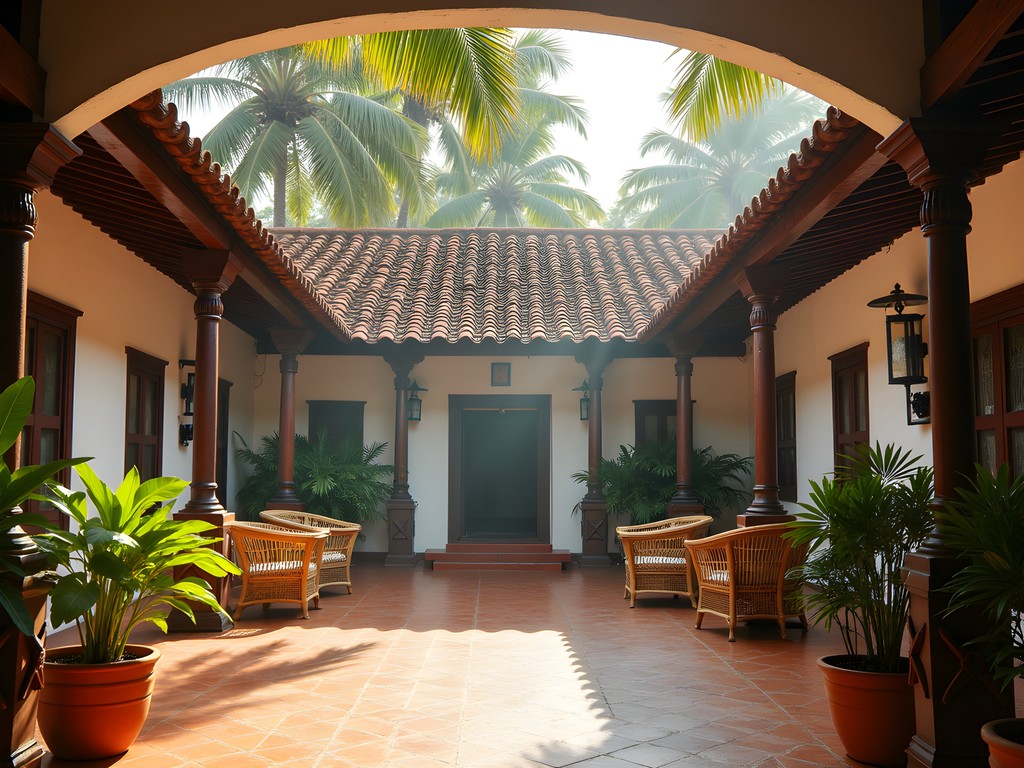
💡 Pro Tips
- Book homestays directly through local sites rather than international platforms for better rates and more authentic options
- Request cooking lessons from your host family—often happily arranged for a small additional fee
- Learn basic Sinhala greetings before arrival; even minimal effort is deeply appreciated
The Cultural Cartography of Galle Fort's Ramparts
My background in instructional design has trained me to seek patterns and connections, which is perhaps why I found myself walking Galle Fort's massive ramparts at different times each day, creating what I came to think of as a cultural cartography of the space.
Built first by the Portuguese and later expanded by the Dutch in the 17th century, these stone walls tell Sri Lanka's colonial story more eloquently than any museum. I recommend beginning your exploration at Flag Rock at sunset, where local cliff divers perform heart-stopping plunges into the Indian Ocean. From there, follow the ramparts clockwise.
I tracked my daily walks using my fitness tracker, noting how the fort's atmosphere transforms throughout the day. Early mornings belong to locals—fishermen returning with their catch, schoolchildren in crisp white uniforms, and elderly residents taking constitutional walks. By midday, international visitors emerge, and evenings bring courting local couples and cricket games on the grassy expanses near the lighthouse.
What fascinated me was how clearly the fort demonstrates the intersection of colonial imposition and local adaptation. Dutch Reformed churches stand near mosques and Buddhist temples, while traditional Sri Lankan homes incorporate European architectural elements in uniquely Sri Lankan ways.
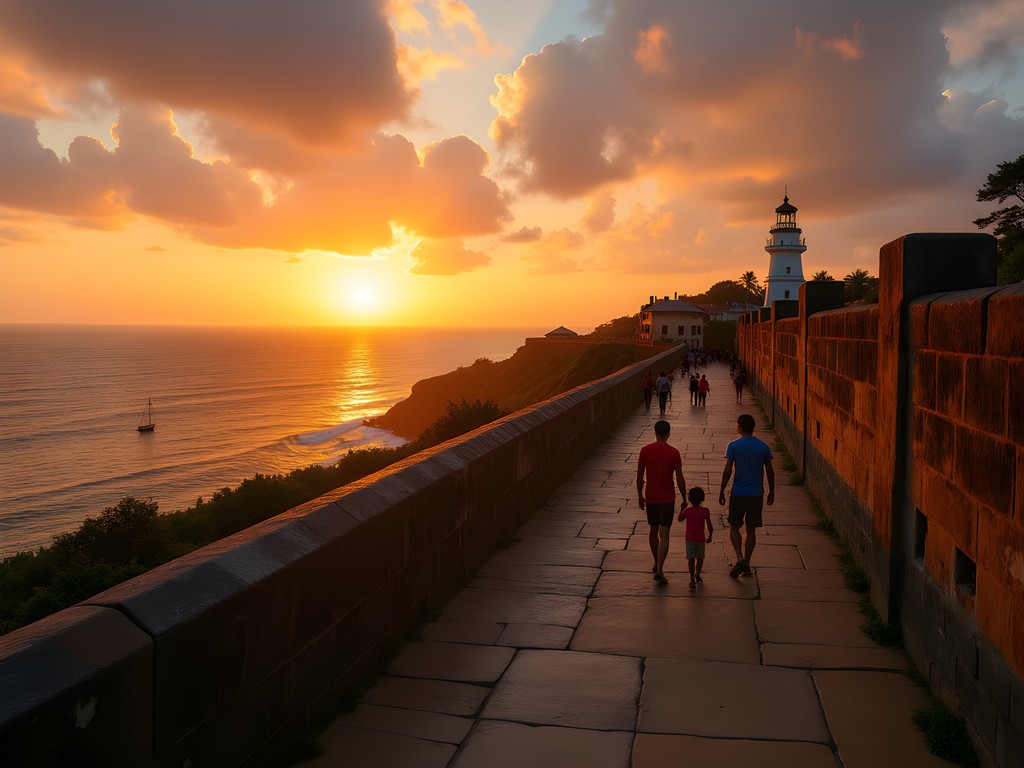
💡 Pro Tips
- Visit the ramparts at sunrise for cooler temperatures and fewer tourists
- Bring a reusable water bottle with built-in filter as hydration is essential in the tropical heat
- Wear shoes with good grip as some sections of the ramparts can be slippery
Hands-On Heritage: Artisan Workshops and Cooking Classes
My time in Silicon Valley taught me that the most valuable learning happens through doing, not just observing. This principle guided my approach to cultural immersion in Galle Fort. Rather than simply purchasing souvenirs, I sought opportunities to learn traditional crafts directly from local artisans.
The standout experience was a three-hour private cooking class with Amali, a fourth-generation Galle Fort resident. In her traditional kitchen, equipped with both modern appliances and clay pots that have been in her family for generations, I learned to prepare authentic Sri Lankan curry using a hand-carved spice grinder that produced flavors electric grinders simply cannot match.
The process was revelatory—not just in technique but in understanding the cultural significance of each ingredient. What Western recipes might call simply 'curry powder' is actually a complex blend of up to 15 spices, each added at precise moments. I've since purchased my own spice grinder to recreate these dishes at home in Sheffield.
Beyond cooking, I participated in a batik workshop where I created my own wall hanging under the guidance of Malik, whose family has practiced this wax-resist dyeing technique for six generations. These hands-on experiences provided deeper cultural insights than any museum visit could offer, while supporting traditional craftspeople whose livelihoods depend on passing these skills to the next generation.
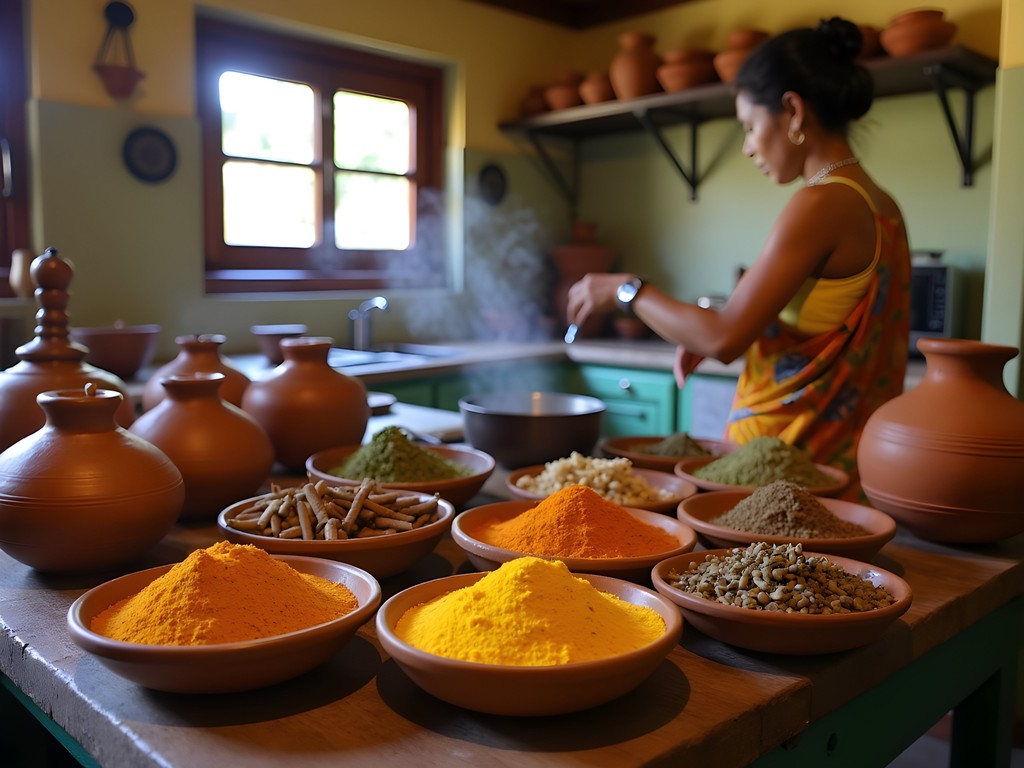
💡 Pro Tips
- Book workshops at least a day in advance as the best artisans have limited availability
- Ask about the history of the craft—most artisans are passionate about sharing their heritage
- Purchase any specialized tools during your workshop when the artisan can explain proper usage
Digital Nomad Moments: Finding Work-Life Balance in a Colonial Fortress
As an instructional designer who occasionally works remotely, I was pleasantly surprised by Galle Fort's emerging digital infrastructure. The juxtaposition of 17th-century architecture and fiber-optic internet connectivity perfectly encapsulates my fascination with how tradition and technology intersect in urban spaces.
Several cafés within the fort walls now cater to digital nomads. My favorite became Café 1663, housed in a restored Dutch colonial building where the baristas prepare excellent local coffee while the reliable WiFi allowed me to upload photos and handle occasional work responsibilities. I found myself settling into a pleasant routine of productive mornings followed by cultural exploration in the afternoons.
To maintain this balance, I relied on my noise-cancelling earbuds to create a focused workspace even when the café filled with tourists. For longer work sessions, I used a portable laptop stand to maintain proper ergonomics—a small but crucial tool for preventing neck strain during travel.
What struck me most was how Galle's residents have adapted historic spaces for modern use without sacrificing their architectural integrity or cultural significance. This thoughtful integration of past and present mirrors what I observed in Lisbon and Medellín, suggesting a global pattern in how historic urban centers evolve in the digital age.
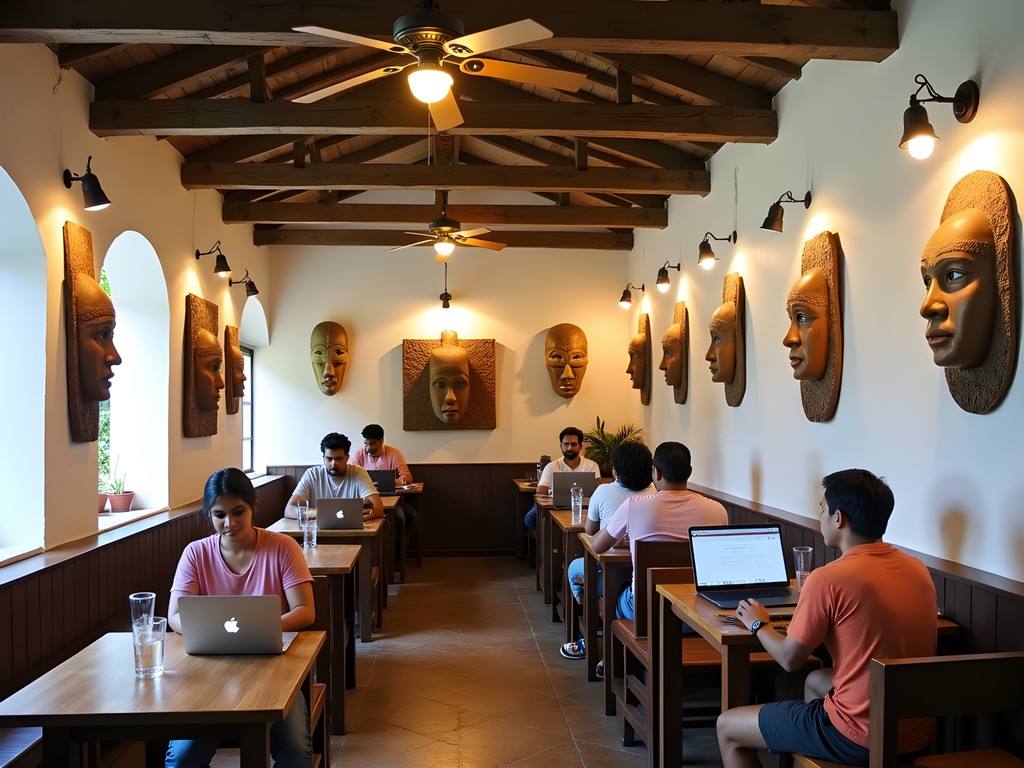
💡 Pro Tips
- Purchase a local SIM card for backup internet when café WiFi becomes congested
- Respect café etiquette by purchasing food/drinks regularly if using the space for extended periods
- Schedule video calls during off-peak hours (before 10am or after 3pm) when cafés are quietest
Dawn Rituals: Connecting with Galle's Spiritual Traditions
My most profound cultural experiences in Galle came through participation in the area's spiritual practices. While the fort itself contains religious buildings from multiple traditions—Buddhist, Hindu, Muslim, and Christian—I found the richest experiences by venturing just beyond the walls before sunrise.
At 5:30am on my third day, I joined local Buddhists at Yatagala Raja Maha Viharaya, an ancient rock temple located about 5km from the fort. Unlike the more famous temples that draw tourist crowds, Yatagala offers an authentic glimpse into daily Sri Lankan spiritual life. I brought a compact meditation cushion that proved invaluable during the hour-long meditation session led by resident monks.
The ritual began with offering lotus flowers at the feet of a reclining Buddha carved directly into the rock face, followed by the rhythmic chanting of Pali sutras. Though I couldn't understand the words, the resonant vibrations created a meditative atmosphere that transcended language barriers. As the only foreigner present, I was initially concerned about intruding, but the warm smiles and guidance from community members quickly dispelled my hesitation.
What struck me most was how this ancient practice continues uninterrupted despite centuries of colonial presence and modernization. The experience reminded me of similar dawn rituals I've witnessed in Japan, where my maternal ancestors practiced Zen Buddhism—creating an unexpected connection between my heritage and this Sri Lankan tradition.
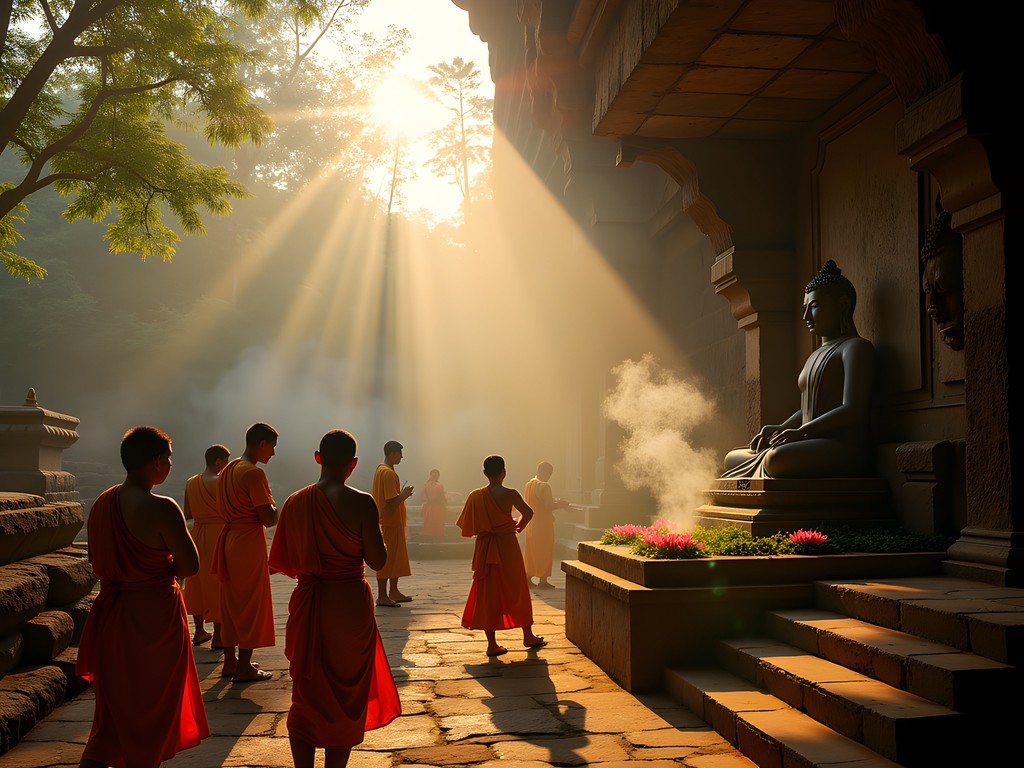
💡 Pro Tips
- Dress modestly with shoulders and knees covered when visiting religious sites
- Bring a flashlight for pre-dawn temple visits as paths may be dimly lit
- Remove shoes before entering temple buildings and never point feet toward Buddha images
Final Thoughts
As my week in Galle Fort drew to a close, I found myself reflecting on how this small colonial enclave had shifted my understanding of cultural preservation. Unlike many heritage sites that feel frozen in time or overly commercialized, Galle Fort breathes with authentic life—a community that honors its complex past while embracing its evolving future.
The fort's success lies in its balance: maintaining architectural integrity while allowing for modern adaptations, preserving traditions while welcoming outside influences, and acknowledging colonial history without being defined by it. For the solo traveler seeking genuine cultural immersion, Galle Fort offers a masterclass in how communities can evolve while maintaining their essential character.
As I packed my bags and said goodbye to my homestay family, I realized that Galle had given me more than just experiences—it had provided a framework for understanding how tradition and innovation can coexist harmoniously. This is the true gift of immersive travel: not just collecting experiences, but developing new lenses through which to view both the world and ourselves. Whether you have a week or just a few days, I encourage you to slow down, settle in, and allow Galle Fort to reveal its layered stories in its own time.
✨ Key Takeaways
- Choose family-run homestays over hotels for immediate cultural integration
- Participate in hands-on workshops to support traditional craftspeople while gaining deeper cultural insights
- Explore the fort ramparts at different times of day to understand how the community uses the space
- Venture beyond the fort walls for authentic spiritual experiences with local communities
- Balance structured activities with unplanned wandering to discover personal connections to the place
📋 Practical Information
Best Time to Visit
December to March (dry season)
Budget Estimate
$50-100 per day including homestay accommodation
Recommended Duration
5-7 days for full immersion
Difficulty Level
Moderate (Some Walking On Uneven Surfaces)

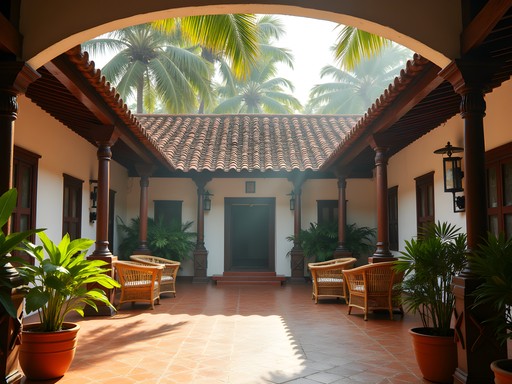
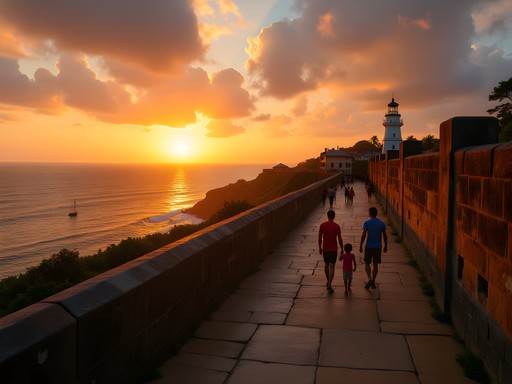
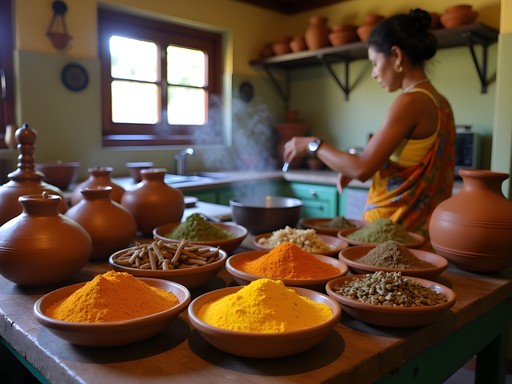
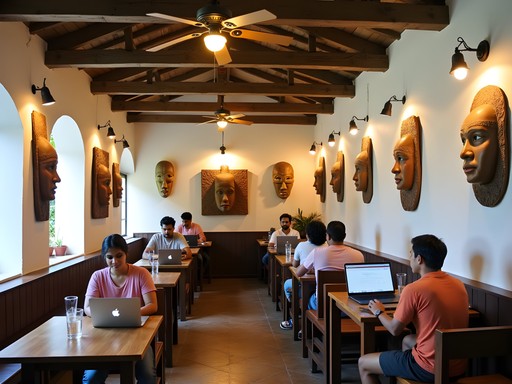



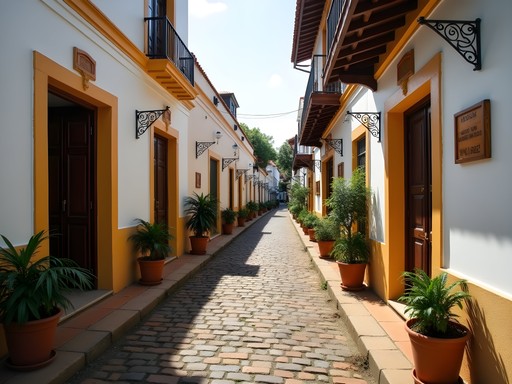
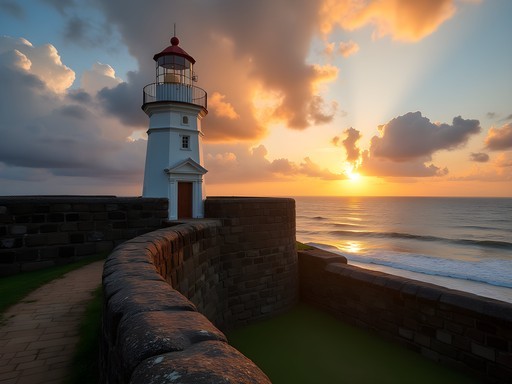
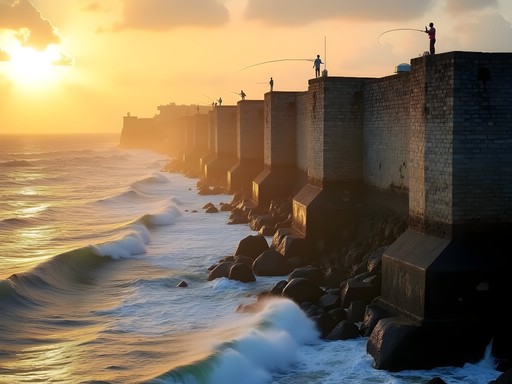
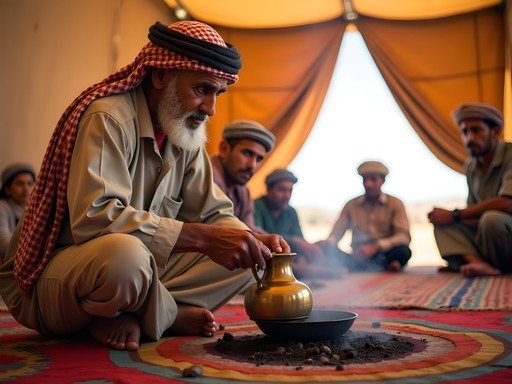
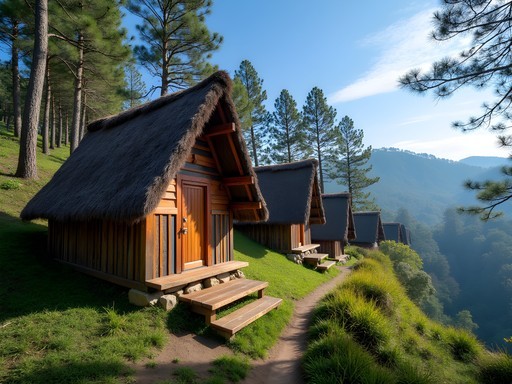
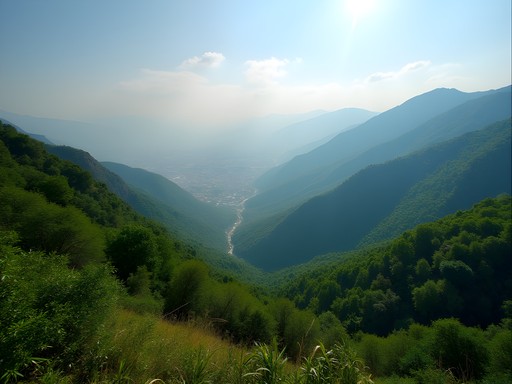

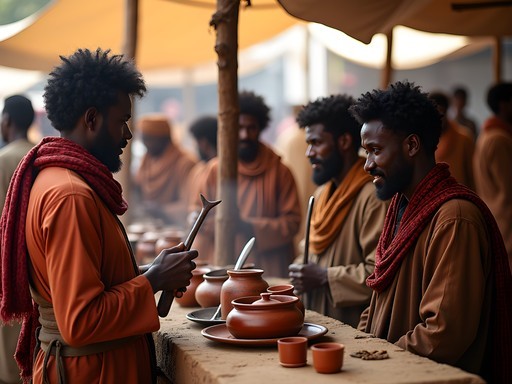
Comments
sunnyseeker
Great post! One tip for anyone going - the cooking classes fill up fast during peak season. Book at least a week ahead if you can. Also the fort gets REALLY hot midday so do your walking early morning or late afternoon. The rampart walk at 6am is magical and you'll have it mostly to yourself. And definitely bargain at the shops inside the fort, prices are marked up for tourists.
summermaster
Good to know about booking ahead, thanks!
wanderlustphotographer1220
OMG your post brought back so many memories!!! I did one of those artisan workshops you mentioned - learned traditional mask painting from a family who's been doing it for generations. Still have my wonky-looking mask proudly displayed in my living room! Did you try the crab curry at Lucky Fort Restaurant? Still dream about it sometimes! 😍
Marco Flores
Naomi, this resonates so much! I spent three weeks in Galle Fort last year and did one of those batik workshops you mentioned. Ended up learning from this incredible 70-year-old artisan who'd been doing it since he was a kid. The stories he told while we worked were honestly more valuable than the technique itself. Also totally agree about the digital nomad vibe - the wifi at that cafe near the Dutch Reformed Church was surprisingly solid. Did you manage to catch any of the cricket matches at the stadium? The energy there is unreal, and it's such a local experience that most tourists completely miss.
Naomi Wilson
Marco! Yes, that batik workshop was incredible. And I did catch one match - you're so right about the atmosphere. Wish I'd had more time for that.
photopro
Love your photos of the ramparts at sunset!
summermaster
This looks amazing! Which homestay did you stay at? Looking for recommendations for my trip in March.
Naomi Wilson
I stayed at Mrs. Perera's place near the lighthouse - super authentic and she does amazing breakfast spreads! Book through her directly if you can, much better rates than the booking sites.
summermaster
Perfect, thanks!!
Lillian Diaz
Naomi, your post transported me back to my own stay in Galle Fort last year! There's something about those narrow streets that feels like stepping into a storybook. I found myself waking up early just to watch the fort come alive - fishermen returning with their catch, shopkeepers sweeping their storefronts, the smell of coconut sambol wafting from kitchen windows. For anyone planning a visit, don't miss the tiny mask workshop tucked behind Church Street. The owner is a fifth-generation mask maker who let me try carving a simple design (I was terrible at it!). Also, the full moon poya day celebrations at the Buddhist temple just outside the fort walls were one of the most moving experiences of my travels. Your section on finding work-life balance resonated deeply - there's something about those ancient walls that puts modern stress into perspective. Beautiful storytelling as always!
Naomi Wilson
Thank you Lillian! I missed the mask workshop somehow - adding it to my list for next time! And yes, there's something about working with those centuries-old walls around you that makes deadline stress seem so temporary.
freepro
Just got back from Sri Lanka last week and spent 3 days in Galle Fort! The digital nomad scene there is growing but still small enough to feel special. I worked from Cafe 1663 most mornings - good wifi and those heritage walls make for the most inspiring Zoom background ever. The only downside was the heat in the afternoons, but nothing a quick dip in the sea couldn't fix. Did you try the crab curry at Lucky Fort Restaurant? Still dreaming about it!
dreamvibes
Were those cooking classes expensive? Worth it for someone who's just an amateur home cook?
Naomi Wilson
Around $30-40 USD for a 3-hour class including market visit and eating what you cook! Definitely worth it even for beginners - I barely cook at home but loved learning about the spices.
vacationphotographer
Beautiful post! What's the best time of day for photography along the ramparts? Planning my trip for November.
Naomi Wilson
Golden hour (about 5-6pm) is magical! The light hits the old walls perfectly and you get silhouettes of locals fishing off the ramparts. Early morning is less crowded though!
tripdiver
Can confirm - sunset by the lighthouse is unreal. Bring a travel tripod if you have one. Helped me get some amazing long exposure shots!
moonrider
Those tea photos are making me crave Ceylon tea right now!
Venture X
Premium card with 2X miles, $300 travel credit, Priority Pass